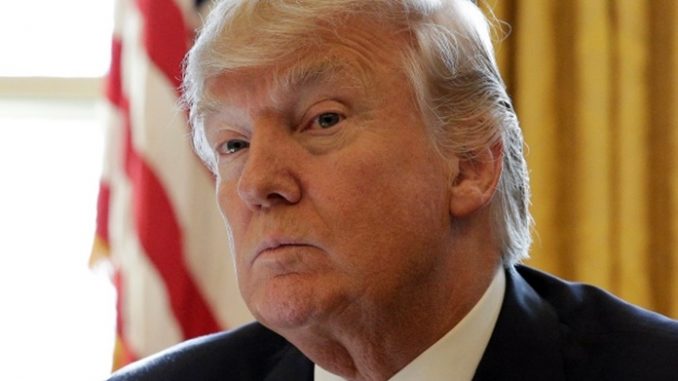
The former UK foreign secretary Sir Malcolm Rifkind claims that US cyber warfare may possibly be behind North Korea’s failed attempt to launch a missile over the weekend.
The Trump administration remains silent on the matter.

BYPASS THE CENSORS
Sign up to get unfiltered news delivered straight to your inbox.
You can unsubscribe any time. By subscribing you agree to our Terms of Use
Latest Video
Russia has moved missiles and troops close to the border with North Korea.
North Korea launched an unidentified ballistic missile on Sunday morning, but the missile “blew up almost immediately,” according to U.S. Pacific Command.
On Saturday North Korea held a massive military parade marking the 105th birth anniversary of its founder Kim Il-sung, grandfather of current leader Kin Jong-un.
North Korea’s second in command after Kim Jong-un warns about the possible cyber attack: “If the United States wages reckless provocation against us, our revolutionary power will instantly counter with [an] annihilating strike… with our style of nuclear strike warfare.”
The National Scot reports:
Kim Jong-Un’s missile test in defiance of United Nations sanctions went spectacularly wrong when the rocket exploded five seconds after launch. Rifkind claimed yesterday that a cyber-attack affecting the electronics of the missile may well have caused the failure.
Deputy national security adviser KT McFarland declined to comment on whether US sabotaged the Korean missile launch with cyber warfare – the American intelligence agencies have reportedly had such a programme for years after former President Barack Obama ordered its creation.
US Defence Secretary Jim Mattis would only say later: “The President and his military team are aware of North Korea’s most recent unsuccessful missile launch. The President has no further comment.”
Other senior US sources were not denying the claims which, if true, could well be seen as an act of war by the dictator, which adds weight to the threats issued by North Korea over the weekend.
Senior North Korean military commander Choe Ryong-Hae, reckoned by many experts to be second in command of the regime, told the state news agency: “If the United States wages reckless provocation against us, our revolutionary power will instantly counter with [an] annihilating strike… with our style of nuclear strike warfare.”
Speaking to the BBC yesterday morning, Rifkind said American intelligence has used cyber warfare to successfully foil missile tests before and that there is a “strong belief” that President Trump’s administration was behind Saturday’s failure.
He said: “It could have failed because the system is not competent enough to make it work, but there is a very strong belief that the US through cyber methods has been successful on several occasions in interrupting these sorts of tests and making them fail.”
Rifkind warned that despite the missile exploding, North Korea remains a serious nuclear threat saying “don’t get too excited by that, they’ve also had quite a lot of successful tests.”
He added: “They are an advanced country when it comes to their nuclear weapons programme. That still remains a fact – a hard fact.”
A US foreign policy adviser travelling with Vice-President Mike Pence on Air Force Two to South Korea said that Saturday’s test had come as no surprise to the US administration.
Speaking anonymously, the adviser said: “We had good intelligence before the launch and good intelligence after the launch.
“It’s a failed test. It follows another failed test.
The adviser continued: “So really no need to reinforce their failure. We don’t need to expend any resources against that.”
Meanwhile former CIA officer Dennis Wilder told ABC news in the USA that North Korea would be able to strike at both the American west coast and Australia very soon if the country was able to keep developing its missiles.
He said: “Such a move would be disastrous – after all a 10-kiloton weapon could kill 100,000 people.
“We believe, and American intelligence estimates say this, that the North Koreans could have such a weapon within the next four years.”
Yet again President Trump took to Twitter to give his reactions: “Our military is building and is rapidly becoming stronger than ever before. Frankly, we have no choice!”
He also suggested that China is helping with the “North Korea problem” as part of a deal with the USA involving trade policy.
Trump tweeted: “Why would I call China a currency manipulator when they are working with us on the North Korean problem? We will see what happens!”
Lt Gen HR McMaster, Trump’s national security advisor, went on television to give the administration’s view of the weekend’s events which included Kim Jong-Un reviewing a spectacular parade of military might.
McMaster told ABC News This Week: “The test fits into a pattern of provocative and destabilising and threatening behaviour on the part of the North Korean regime.
“There’s an international consensus now — including the Chinese and the Chinese leadership — that this is a situation that just can’t continue.
“While it’s unclear and we do not want to telegraph in any way how we’ll respond to certain incidents, it’s clear that the President is determined not to allow this kind of capability to threaten the United States.
“Our President will take action that is in the best interest of the American people. And the President has made clear that he will not accept the United States and its allies and partners in the region being under threat from this hostile regime with nuclear weapons.”
It was also reported yesterday that the man in charge of the world’s second biggest nuclear arsenal, Vladimir Putin, had moved missiles and troops close to the North Korea border.
Russia only has 11 miles of a border with North Korea, but the major city of Vladivostok is just eight miles from that border, and residents yesterday posted footage on the internet allegedly showing trucks carrying missiles trundling through their city.
The Russian Government has not confirmed the purpose of the military movements.


